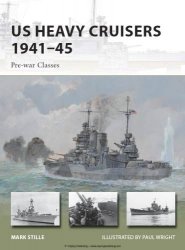Salient, the road running in a southeasterly direction frojn Ypres through Gheluvelt to Menin figured prominently in most of the major operations in Flanders during World War I. In the Battle of the Menin Road Ridge from September 20-25 1917 - part of the British offensive at Ypres - Plumer's Second Army secured much of the vital Gheluvelt plateau, although Gheluvelt itself remained in German hands until taken by British II Corps in September 1918. Earlier, in April 1918, the Germans had reached Hell Fire Corner on the Menin Road, the closest they came to Ypres that year. PJS.
“Menu” operations. At the behest of the American Command in Vietnam, which had long wished to attack the Cambodian sanctuaries of Vietnamese communist forces. President Nixon approved bombing operations, collectively known as “Menu” to begin March 18, 1969, which eventually struck 13 out of the communists’ 15 base areas in Cambodia. Though tacitly approved by Sihanouk they were kept secret. “Menu’s” disclosure by the New York Times in May 1970 provoked the effort to plug leaks that led to the Watergate scandal. When US and South Vietnamese forces attacked the sanctuaries on the ground that same month, “Menu” was renamed “Freedom Deal” and expanded to other targets. The US Congress ended the bombing by cutting off funds, effective Agusut 15 1973, by which time US planes had dropped 383,851 tons of bombs on Cambodia. WST.
Menzies, Sir Robert Gordon
(1894-1978). Australian Prime Minister 1939-41 and 1949-66. He involved Australia in the Korean and Vietnamese wars and attempted to assist Britain’s position in the Suez Crisis by leading a delegation to Nasser.
Menzies, Maj Gen Sir Stewart Graham (1890-1968). Br. Fought at First Ypres; on (uiq intelligence staff 1915-18; as deputy head of MI6 responsible for Venlo incident, 1939; as head of MI6, 193953, took responsibility for Bletch-ley Park’s results; dismissed after Maclean’s defection.
Merkava. Israeli Main Battle Tank. Introduced 1978. See also
Merrill, Maj Gen Frank (1903
55). US. Assistant Military Attache to Japan 1938—41; following America’s entry into the war, joined Gen Stilwell’s staff in Burma. In January 1944 he was given command of the recently formed 5307th Composite Unit (Provisional), soon known as “Merrill’s Marauders”. Emulating the Chin-dits, this specialist long-range penetration force embarked upon its first operation in February 1944. Merrill participated in three raids but twice had to be evacuated after suffering heart attacks. He subsequently served in various staff posts until his retirement in 1947. MS.
Mersa Matruh, Battle of (June
26-27 1942). Fought to gain time for the preparation of the El Ala-mein Line. X Corps (Holmes) from Syria with 10th Indian and 50th Divisions held the coastal sector, while XIII Corps (Gott) with 5th Indian, New Zealand and 1st Armoured Divisions covered the open desert flank. The Afrika Korps (Nehring) attacked and penetrated the centre of the British position during the night of June 26—27. Failing to reestablish his line during the 27th, Auchinleck, who had personally taken command of Eighth Army from Ritchie on June 25, continued the withdrawal to El Alamein. XIII Corps disengaged successfully, but due to poor communications X Corps was delayed and lost heavily breaking out from Matruh. WGFJ.
Mers-EI-Kebir, bombardment of
(July 3 1940). French naval base near Oran. With the fall of France, the British government feared a German takeover of the powerful French fleet. Adm Somerville was sent with Hood, Resolution, Valiant, Ark Royal, 2 cruisers and 11 destroyers to present Adm Gen-soul at Mers-el-Kebir with the alternatives of joining him, going to the West Indies, or scuttling his ships. Failing acceptance of one of these within six hours, force would be used. Gensoul, understandably, proved difficult; initially refusing to speak to the envoy, he failed to present the alternatives to scuttling to his Admiralty, and inevitably tragedy followed. The British mined the harbour entrance to prevent escape, and finally opened fire some time after the original ultimatum expired, on the news that the French were preparing to go to sea. Bretagne blew up, Dunkerque and Provence and several smaller ships were badly damaged; Strasbourg escaped. French loss of life was heavy. Controversy will continue about the handling of this incident, and the responsibility of Churchill, and the local commanders. Both sides were probably too inflexible, and not enough time was allowed by the ultimatum. DJL.
Mesopotamian campaign (191418). In August 1914 Britain had considerable interests in the oilfields at the head of the Persian Gulf. Secretary of State for India (Lord Crewe) foresaw the threat posed if Turkey was to join the war on the side of the Central Powers. Without consulting Kitchener, (Secretary of State for War), Crewe ordered the Viceroy of India to dispatch a division to Abadan. The resultant campaign was thus simultaneously managed from London and New Delhi. Britain and France declared war on Turkey on November 5 1914. British and Indian troops had already arrived at Bahrein and on November 22 captured Basra. Reinforced from India, the force, now a corps of two infantry divisions and a cavalry brigade, was placed under command of Gen Sir John Nixon, an Indian Army officer who directed Maj Gen Charles Town-shend to advance up the Tigris whilst Maj Gen Gorringe’s smaller force moved up the Euphrates. On June 3 1915, Townshend took Amara; Gorringe captured Nasir-iya on July 25. Both columns were now extended on long lines of communication, depending largely on river boats for logistic support. Against stubborn Turkish resistance, Townshend took Kut on September 28, but instead of consolidating, he rushed impetuously towards Baghdad. On October 5 he reached El Aziziya, but then the river fell and his supply line began to collapse.




 World History
World History









